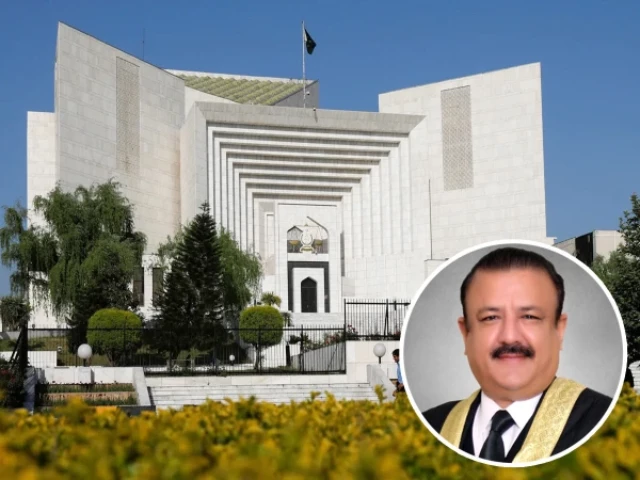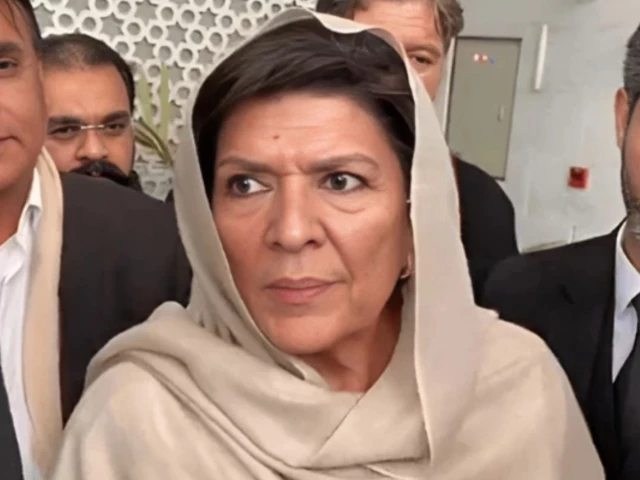The Supreme Court Decision: Unpacking Justice Tariq Mehmood Jahangiri’s Case
On Monday, the Supreme Court took a significant step by suspending an order from the Islamabad High Court (IHC) that had previously barred Justice Tariq Mehmood Jahangiri from performing his judicial duties. This has stirred much discussion about judicial independence and the integrity of academic qualifications in Pakistan’s legal system.
The case unfolded before a five-member constitutional bench led by Justice Aminuddin Khan. Joined by Justices Jamal Khan Mandokhail, Muhammad Ali Mazhar, Hasan Azhar Rizvi, and Shahid Bilal Hasan, the bench examined the details surrounding allegations related to a purported fake law degree that Justice Jahangiri acquired decades ago. His academic credentials were recently challenged by the University of Karachi, which cited findings of academic malpractice dating back to the 1980s.
Upon entering the court, Justice Jahangiri, alongside fellow IHC judges, addressed journalists regarding the status of his degree. "It’s astonishing that they are cancelling a degree after 34 years; this has never happened in world history," he remarked. This sentiment echoes a broader concern about the potential implications of such a precedent—not just for him but for the credibility of the judicial system at large.
During the proceedings, it was highlighted that the Supreme Judicial Council (SJC) is set to convene on October 18. Justice Mandokhail emphasized that the current deliberation was primarily about the IHC’s interim order. This situation raises critical questions about the due process involved in handling judicial conduct—the integrity of Justice Jahangiri should ideally be carefully evaluated without the backdrop of a contentious academic dispute.
Justice Jahangiri’s counsel, Muneer A. Malik, argued against the IHC’s earlier ruling, asserting that a judge should not be restricted from their duties amid an ongoing inquiry. "This is the first time in history that a high court has stopped one of its judges from judicial work," he stressed, suggesting that it undermines justice’s foundations.
As the arguments unfolded, the court recognized the need for a closer look at the facts. Justice Mazhar pointed out that previous restrictions placed on judges were grounded in entirely different circumstances. Malik’s pleas for the suspension of the IHC order highlighted the importance of maintaining a clear and fair approach to justice—one that does not send mixed signals to the public regarding the standing of judges.
As the case adjourned, notices were sent out to relevant parties, setting the stage for further discussions. The Islamabad Bar Council and District Bar Association also expressed interest in becoming involved, suggesting that the implications of this ruling resonate beyond just this one case.
Many are viewing this scenario as indicative of larger trends affecting judicial independence, particularly in a political landscape where such notions are often under siege. Justice Jahangiri himself framed his situation as a form of "political victimisation," particularly given his previous involvement in politically sensitive cases.
In the coming days, as discussions continue, many in the legal community will be watching closely. How this case unfolds could set significant precedents for the relationship between judicial integrity and academic credentials in Pakistan’s legal system.
If you’re interested in more in-depth discussions on legal matters and their ramifications in Pakistan, consider staying connected. Pro21st offers resources and insights that can help you navigate these complex issues.
At Pro21st, we believe in sharing updates that matter.
Stay connected for more real conversations, fresh insights, and 21st-century perspectives.





